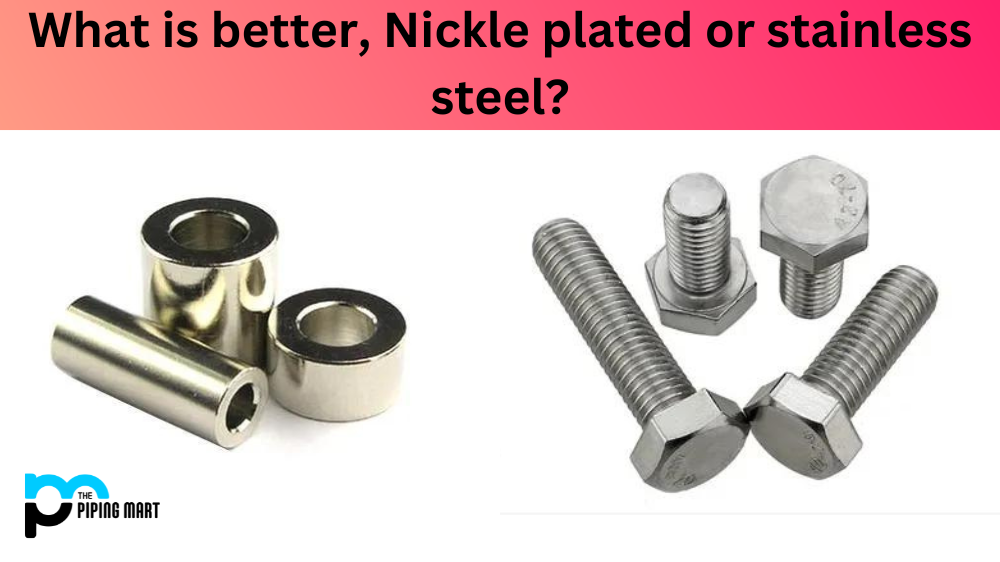When it comes to metal plating, there are two popular options that come to mind: nickel plating and stainless steel. But what is the difference between these two materials? Which one is best for your project? To help you decide, let’s take a look at the pros and cons of each option.
Nickel Plating Pros & Cons
Nickel plating is a process in which a thin layer of nickel is bonded to a metal base. It provides an affordable way to protect metals from corrosion and wear and tear, as well as giving them an aesthetically pleasing finish. Nickel plating also offers superior electrical conductivity compared to other types of metal plating. On the downside, nickel-plated surfaces can be prone to tarnishing if not properly cared for and sealed. Additionally, nickel-plated surfaces can sometimes cause skin irritation or allergic reactions when handled without gloves or other protective gear.
Stainless Steel Pros & Cons
The biggest advantage of using stainless steel is that it is highly corrosion-resistant and can withstand extreme temperatures without losing its strength or integrity. It is also very durable, so it doesn’t require much maintenance over time. However, stainless steel can be expensive compared to other metals and may not provide the same level of electrical conductivity as some other metals, such as nickel-plated surfaces. Additionally, stainless steel can be difficult to work with because it requires special tools for cutting or machining due to its hardness and resistance to heat.
Conclusion:
When deciding between nickel plating or stainless steel for your project, it’s important to weigh the pros and cons of each material carefully before making a decision. Nickel-plated surfaces offer superior electrical conductivity but may require more maintenance over time due to tarnishing issues. Stainless steel is more expensive but offers superior corrosion resistance and durability with less need for maintenance over time—but may lack in terms of electrical conductivity compared to other metals like nickel-plated surfaces. Ultimately, both materials have their own merits depending on your needs and budget; whichever option you choose should ultimately depend on what works best for you!
Meet Heer, a dynamic and driven writer learning tricks of her trade in the metal industry. With a background in Digital Marketing, Heer brings a unique perspective to her writing, sharing valuable insights. Apart from blogging she like reading and hiking.




